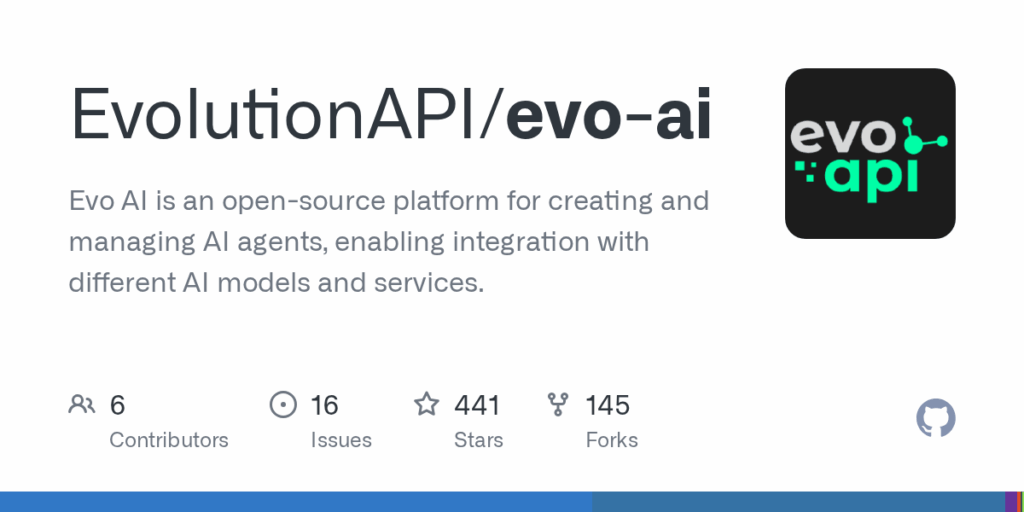evo ai
Basic Information
Evo AI is an open-source, developer-facing platform for creating, configuring and managing AI agents and agent workflows. It provides a full-stack reference implementation with a FastAPI backend and a Next.js frontend that lets teams register clients and MCP servers, create agents, organize them into folders, seed initial data and test agents through a chat interface. The project is designed to integrate different language model engines and agent runtimes, support secure API key storage and provide authentication and account management out of the box. It targets developers and organizations who need an extensible environment to build single agents or composite multi-agent architectures and to run them locally or in production using Docker.
Links
Stars
431
Github Repository
App Details
Features
The repository documents a range of built-in features and integrations: multiple agent types (LLM agents, A2A agents implementing the Agent-to-Agent protocol, sequential, parallel, loop, workflow and task agents), Google Agent Development Kit support and an alternative CrewAI engine option under development. It includes JWT-based authentication with email verification and password recovery, encrypted API key management, LangGraph for workflow graphs, Langfuse integration for tracing and observability, Swagger and ReDoc API docs, database migrations and seeders, and Docker compose recipes. The stack lists FastAPI, SQLAlchemy, PostgreSQL, Redis, Alembic, Next.js, TypeScript and Tailwind along with developer makefile commands and frontend build scripts.
Use Cases
Evo AI helps teams accelerate development of interoperable and composable AI agents by providing a reusable platform and tooling for agent lifecycle management. Developers get ready-made authentication, database migrations, seed data and a web UI to create, run and test agents, which shortens setup time and reduces boilerplate. Integration with LangGraph enables graph-based workflows, and Langfuse support offers observability over prompts, model responses and tool calls. Encrypted API key storage and JWT flows support production readiness while Docker and makefile targets simplify local development and deployment. The A2A protocol support enables agent interoperability across implementations, making the platform suitable for experimentation and building multi-agent systems.








